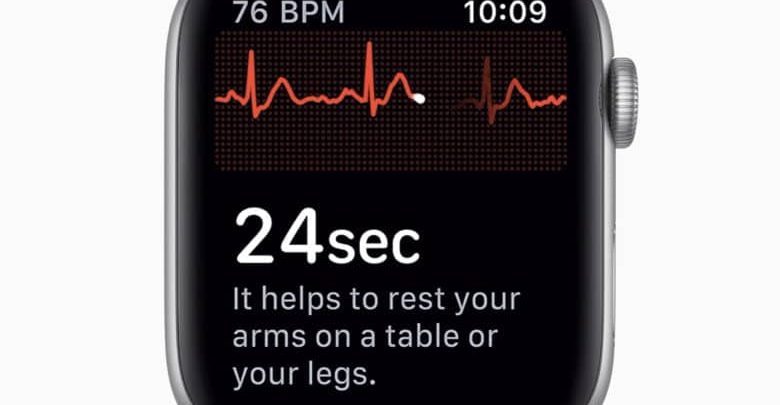
Apple recently announced the results of their major study on irregular heartbeat, the largest of its kind. The results of the study, summed up in a few words, are “imperfect, but promising”. The study analysed over 419,000 Apple Watch users. The watches detected signs of irregular heartbeat, one of the early warning signs of stroke, in around 2,100 of the participants.
Apple joined forces with researchers at Stanford University for the screening, which was praised as the largest study of this kind to date. One of the reasons that the study is being seen as a success is that it did do what was intended. It didn’t trigger false positives and scare people who were otherwise healthy into believing that they had health problems.
Here’s a breakdown of some of the most important findings; A third of all people in the study who received EKG monitoring through the study showed atrial fibrillation – the irregular heartbeat that can lead to potentially fatal problems such as strokes and blood clots. This is according to the presentation of the results, which was done at a conference at the American College of Cardiology in New Orleans.
Stanford Dean of Medicine Dr. Lloyd Minor commented on the study and the results, saying “This study we believe provides very encouraging evidence that a device, the Apple Watch, can be used to detect a-fib and to point out to people when additional monitoring or testing may be needed.”
When Apple announced the results, they noted that the around 2,100 people who presented an irregular heart rhythm were less than half a percent of the total people in the study. They concluded this showed the irregular heartbeat detection features of the Apple Watch gave the right people the information that they needed. It has also potentially changed the lives of these users, given that a number of them sought out medical advice and used the notification from the watch as a sign it was time to have “meaningful” conversations with a doctor about what to do now.
Dr. Richard Kovacs, a member of the American College of Cardiology who was not involved with the study directly, says that the results are good but are still not perfect. There were many things that were supposed to happen after users received irregular heartbeat notifications, such as these users consulting with doctors via telehealth and wearing an EKG patch which would measure cardiac activity for a week to verify the accuracy of the notification. It seems that not every users followed these steps, with some participants forgoing the telehealth and consulting their own personal doctor.
Another doctor not involved with the study, Dr. Valentin Fuster – director of Mount Sinai Heart in New York – weighed in on the survey. He said that he would like to see the study repeated but with some extra variables, such as testing seniors with high blood pressure.





Leave a Reply
Thank you for your response.
Please verify that you are not a robot.